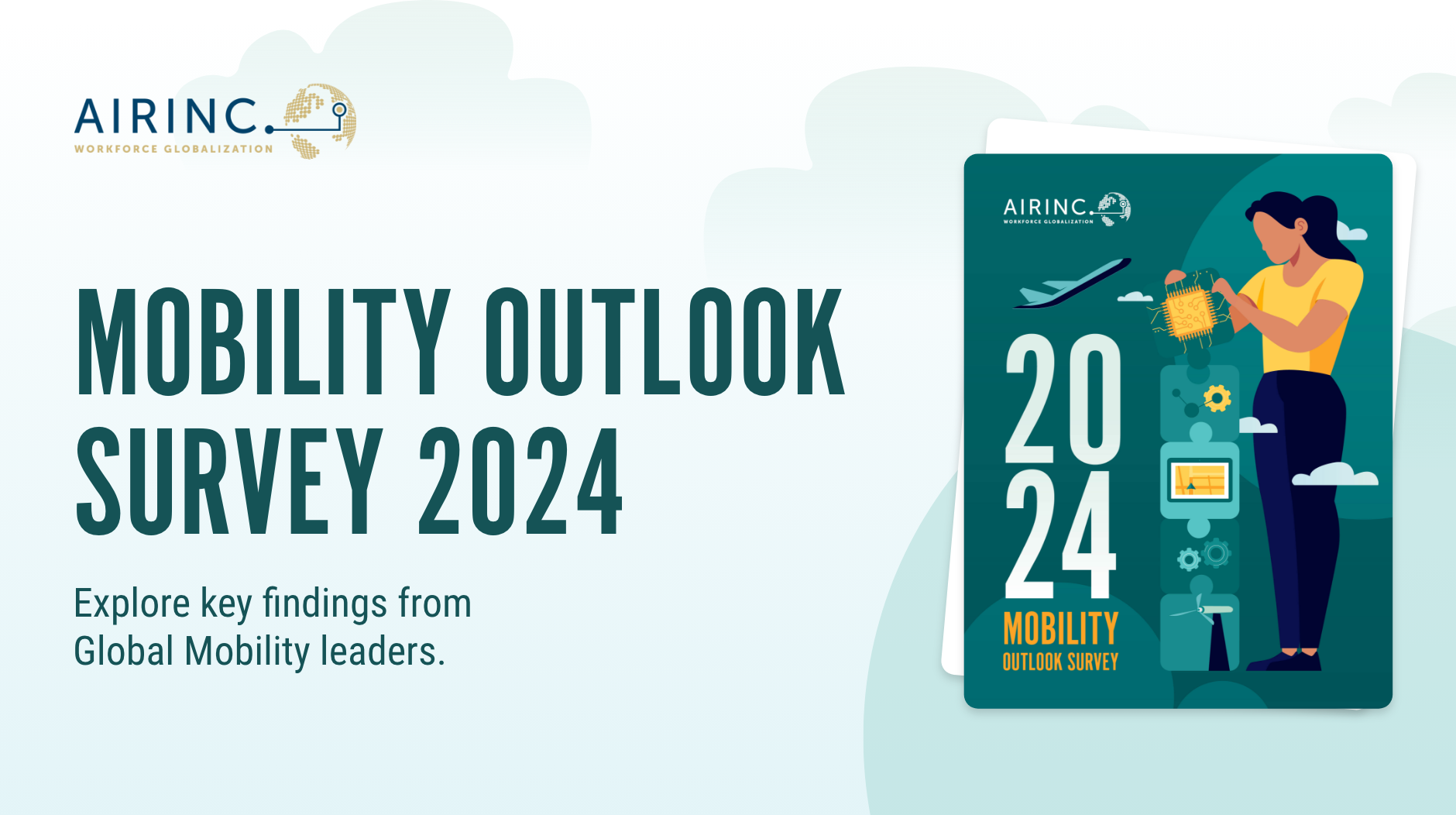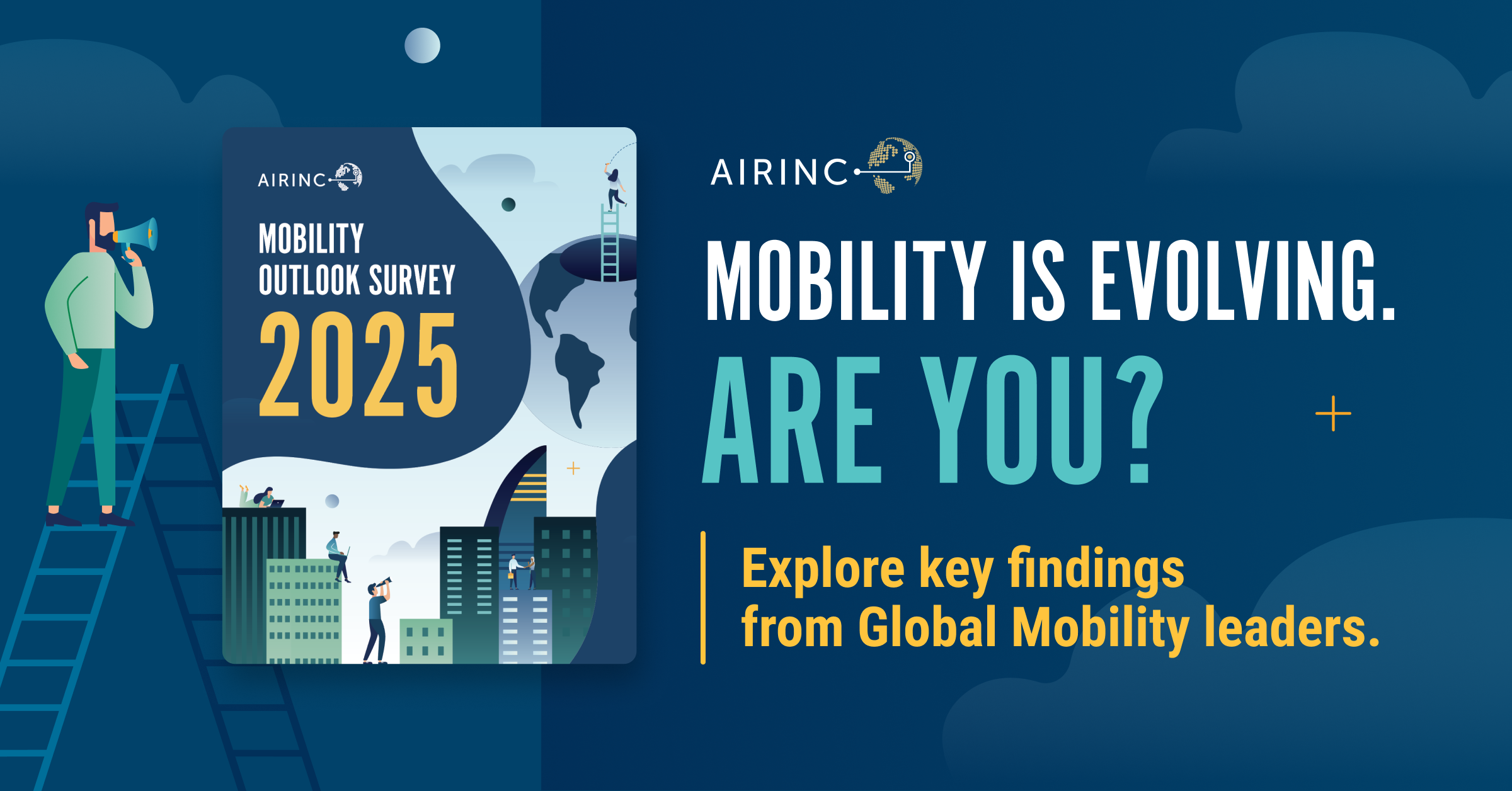We asked you, those most familiar with the complexities of Mobility, what your predictions are for the upcoming year, and the answers reveal a dynamic landscape with exciting opportunities to promote talent mobility. Based on your comments and reactions, the 2024 outlook emphasizes the adaptability to workforce changes, the strategic evaluation of how Mobility can best serve its customers and the integration of technology and AI. Some of these themes have been evolving over the years, while others are still emerging concepts.
-
Strategic Talent Mobility
“Preparing ourselves for long-term growth is our mantra for 2024. We need to stabilize our current mobility program, processes, and policies.” — North American Technology Company
Talent mobility is no longer a mere administrative function; it’s a strategic lever for growth. Organizations recognize that their success hinges on the ability to move talent seamlessly across geographies. Whether it’s deploying experts to emerging markets, transferring high-potential employees, or facilitating cross-functional rotations, mobility programs must align with business objectives. The future lies in agile talent deployment, where organizations can swiftly respond to market demands and capitalize on opportunities. -
Beyond Traditional Assignments
“More bespoke. Global Mobility involvement in workforce management rather than traditional assignments.” — European Publishing Company
The cookie-cutter approach to assignments is in the past. Mobility is no longer just about sending employees abroad; it’s about employee retention and promoting the company’s talent strategy. Organizations must consider short-term assignments, virtual mobility, and talent exchanges. The future belongs to bespoke mobility, where solutions are tailored to the unique requirements of each employee. This could mean virtual cross-functional teams, project-based mobility, and temporary international work-from-anywhere. -
Navigating Changing Landscapes
“With increases in political and economic turmoil, companies will need to have strategies to manage staff in these situations. Duty of care will become a bigger focus as well as risk management.” — European Non-Profit Organization
Global events—political upheavals, economic crises, and health emergencies—impact Mobility. As Mobility always has, organizations are also focusing on prioritizing duty of care for their mobile workforce. Risk management, crisis response, and employee well-being are non-negotiable. The future calls for robust contingency plans, real-time tracking, and empathy-driven support. By building these into policies, Mobility can prepare themselves to weather any storm. -
Technology and AI Integration
“We expect to continue with our current policies and systems with some updates and adjustments. We expect the complexity to continue around issues of immigration, compliance, and remote work, as well as more complex personal facts and circumstances than in the past. Numbers should remain about the same as 2023.” — North American Financial Services Company
Technology has already begun to transform Mobility, and it’s not slowing down. AI-driven analytics can optimize assignment decisions, predict talent gaps, and enhance compliance. As companies learn how to incorporate new solutions into their programs, Mobility will find efficiencies that free up their time to focus on more strategic initiatives. The future lies in seamless integration by connecting HR systems, immigration platforms, and mobility tools.





%20(47).png)

%20(26).png)

